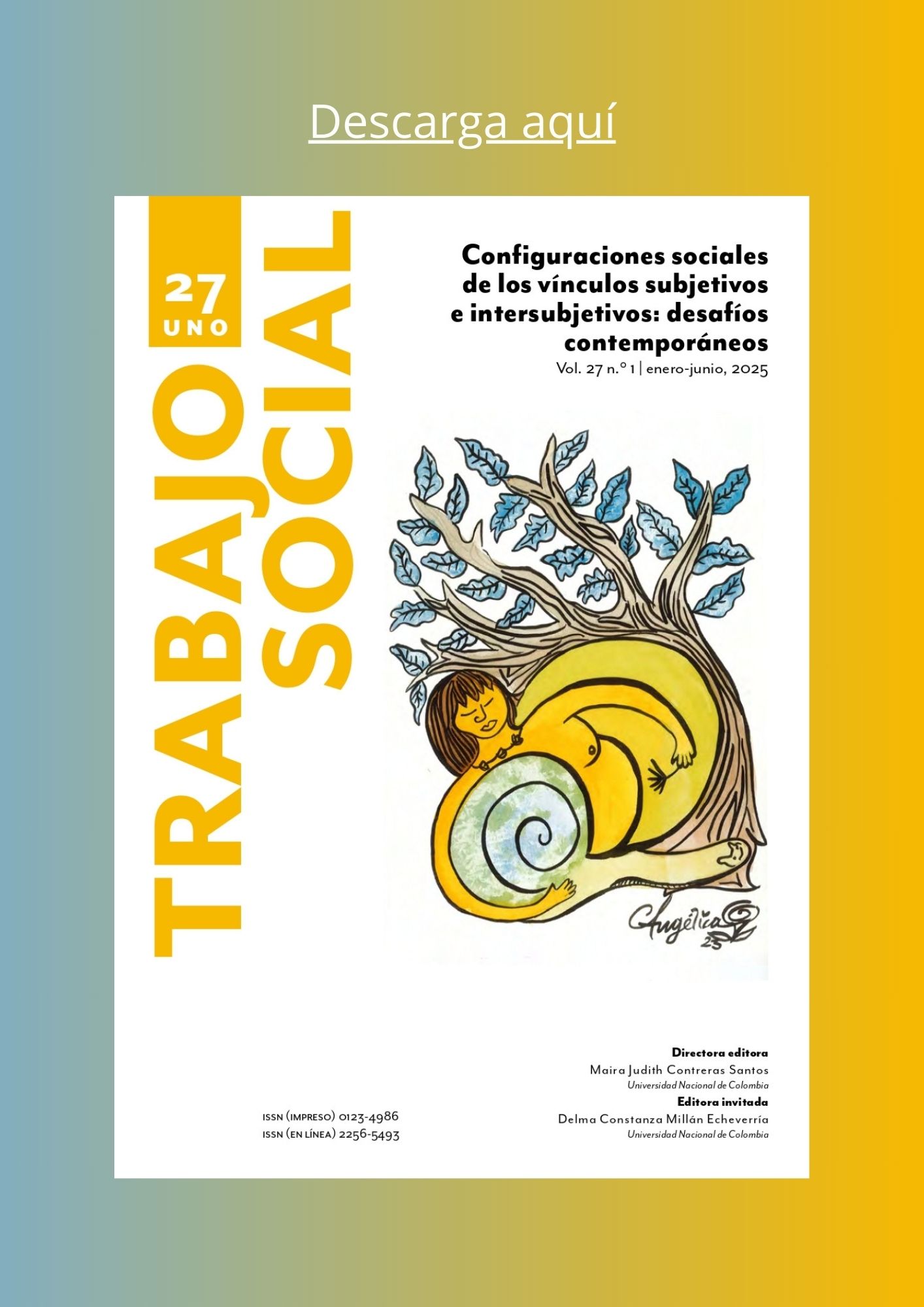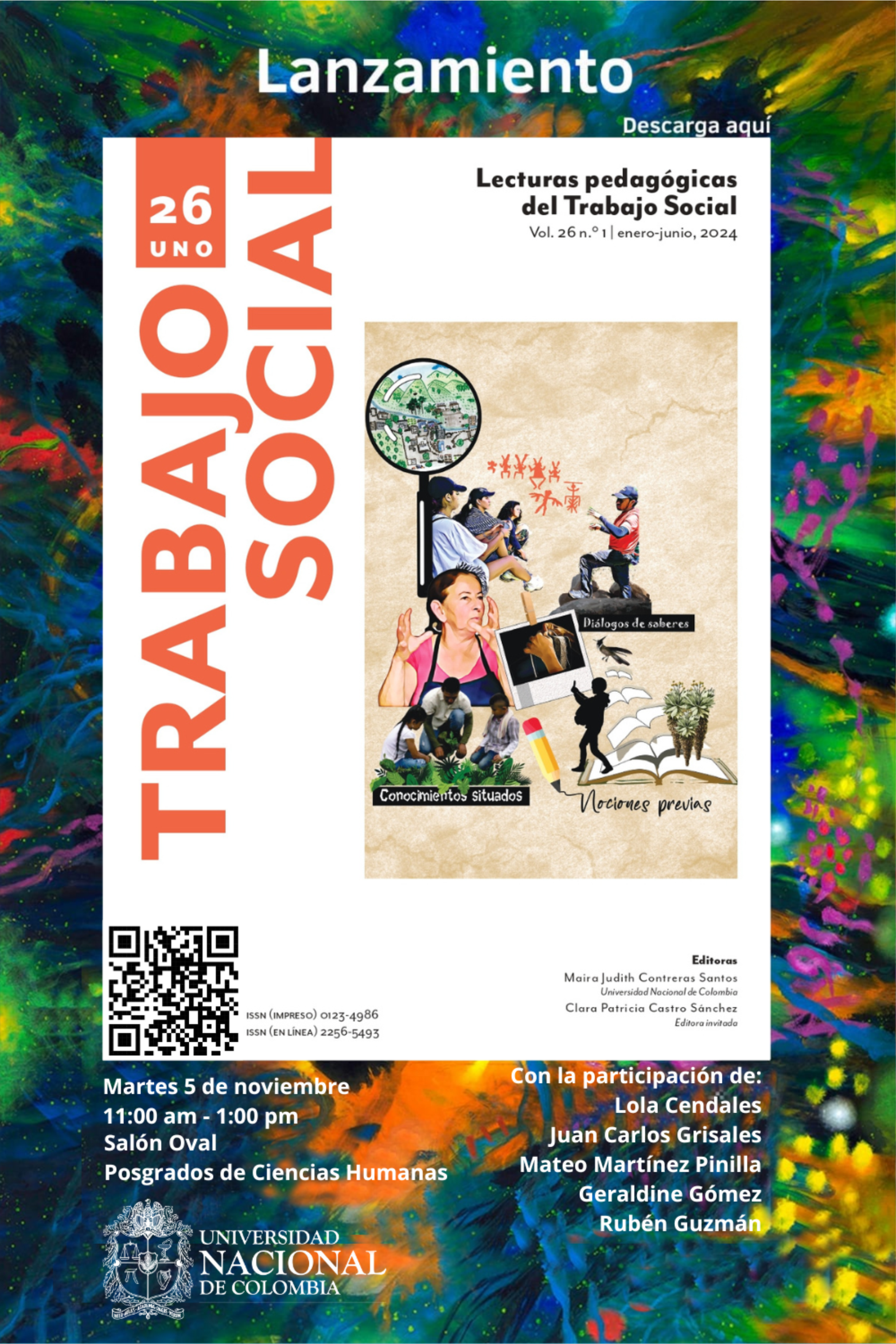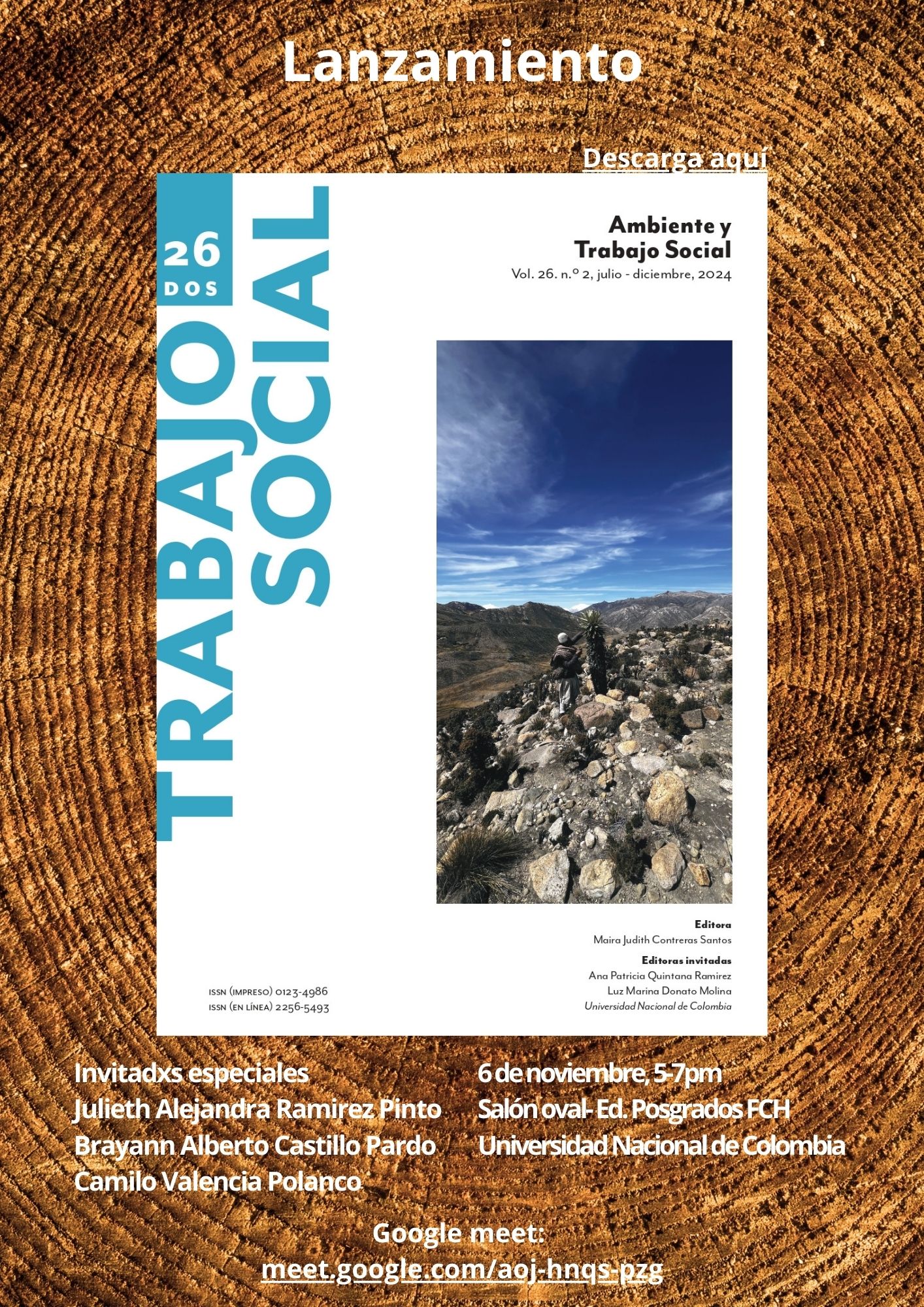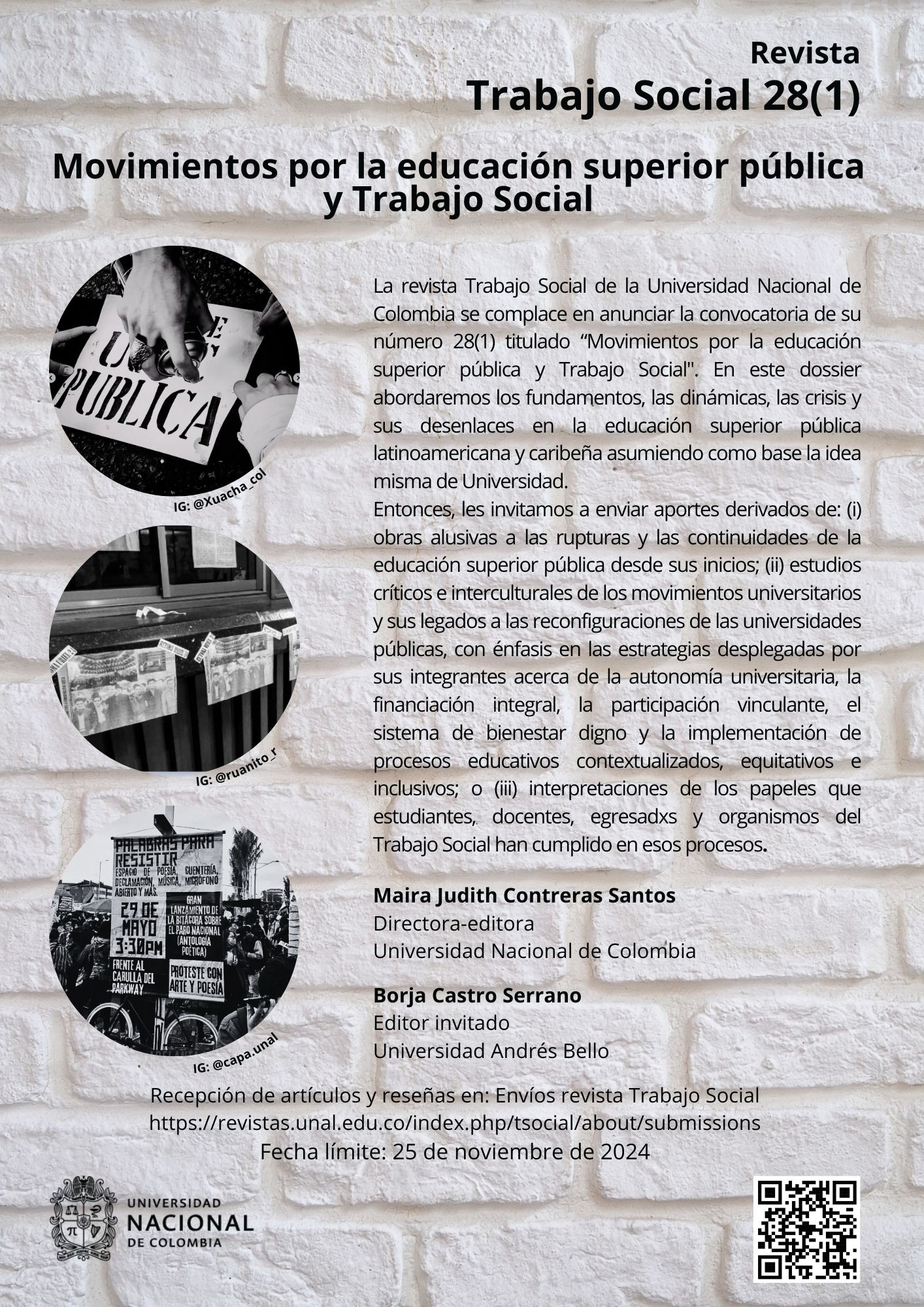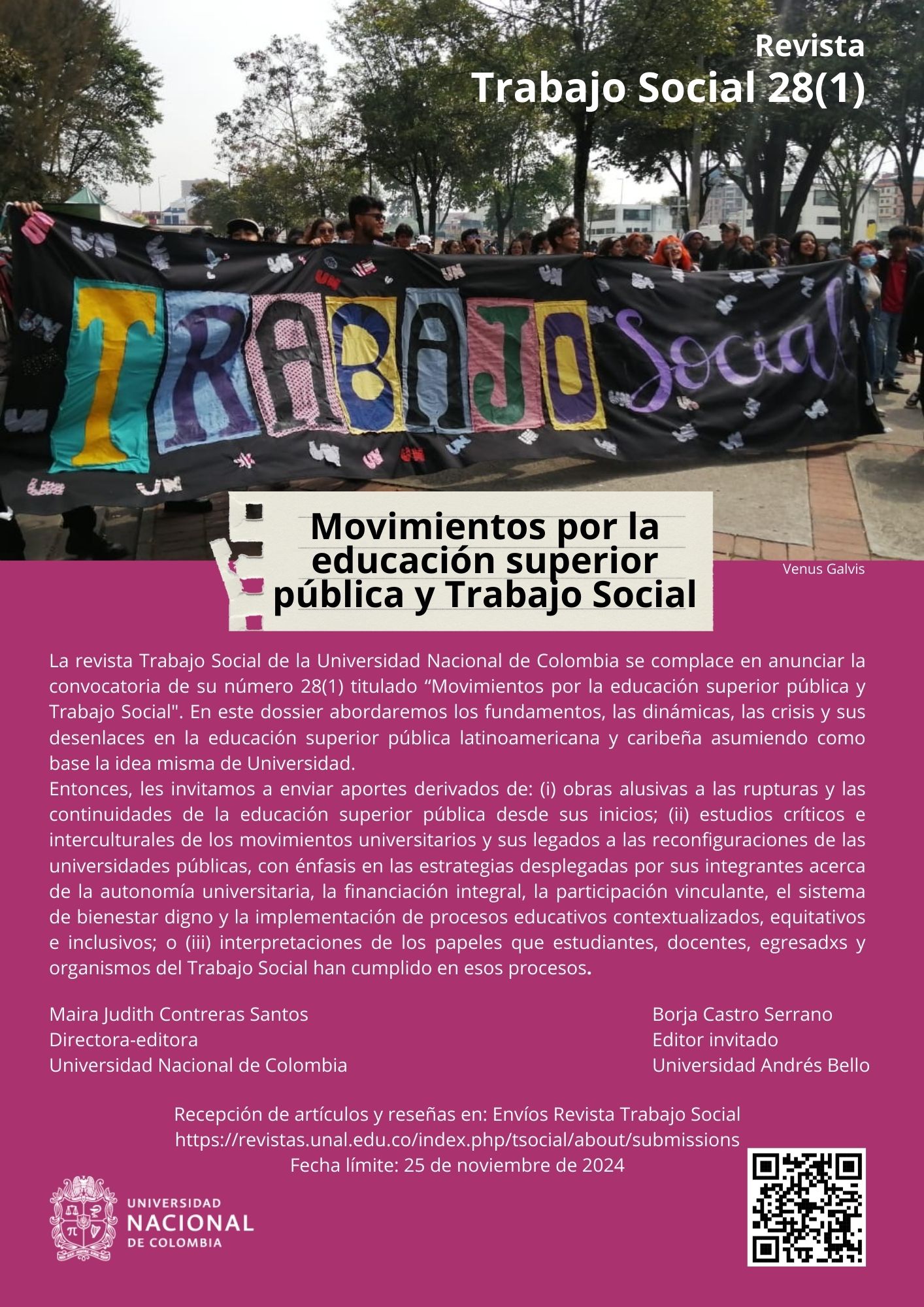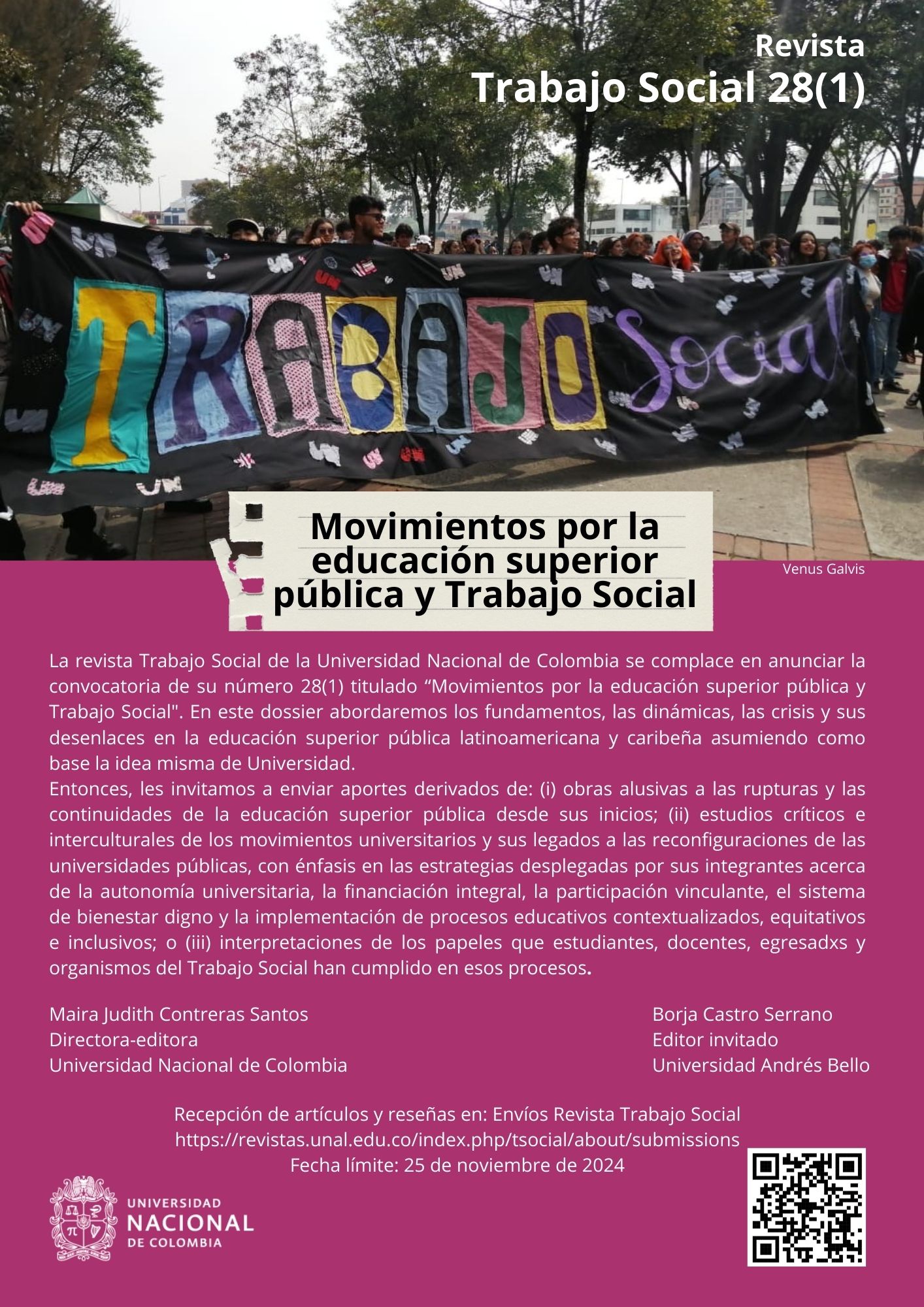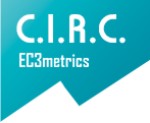Revista Trabajo Social 27(1) - Configuraciones sociales de los vínculos subjetivos e intersubjetivos: desafíos contemporáneos
¡Ya se encuentra en línea la revista Trabajo Social 27(1) - Configuraciones sociales de los vínculos subjetivos e intersubjetivos: desafíos contemporáneos. Descarga aquí!
Read more about Revista Trabajo Social 27(1) - Configuraciones sociales de los vínculos subjetivos e intersubjetivos: desafíos contemporáneos


